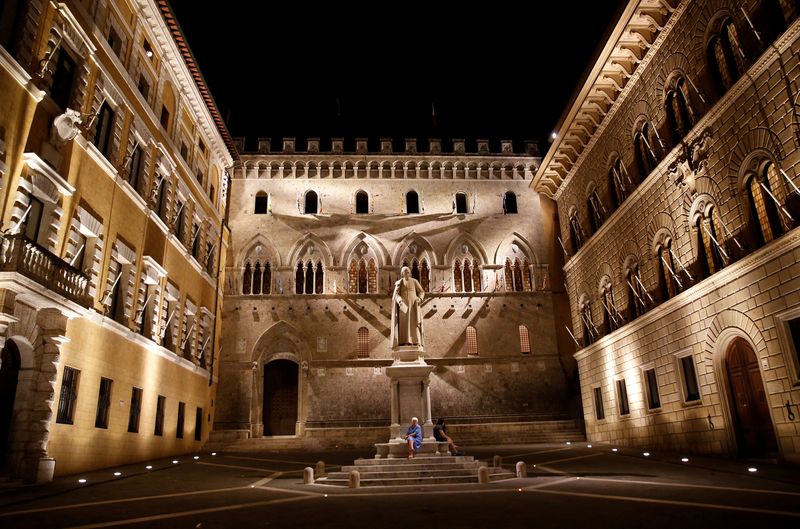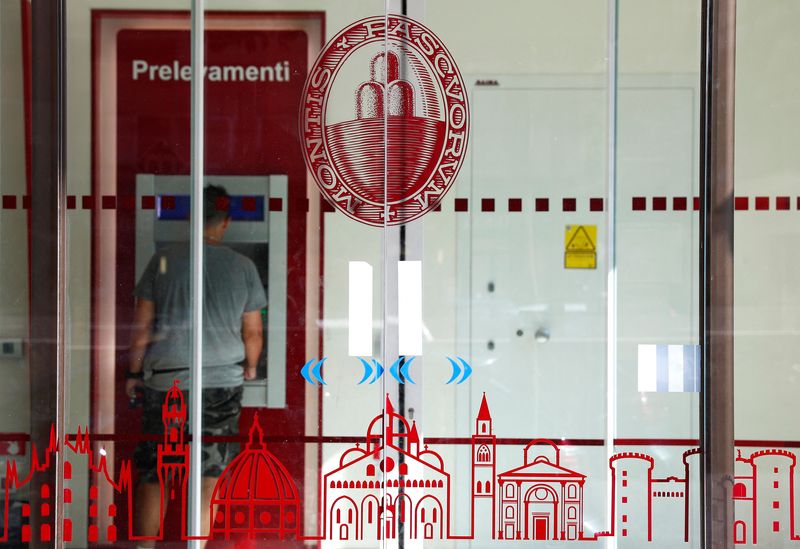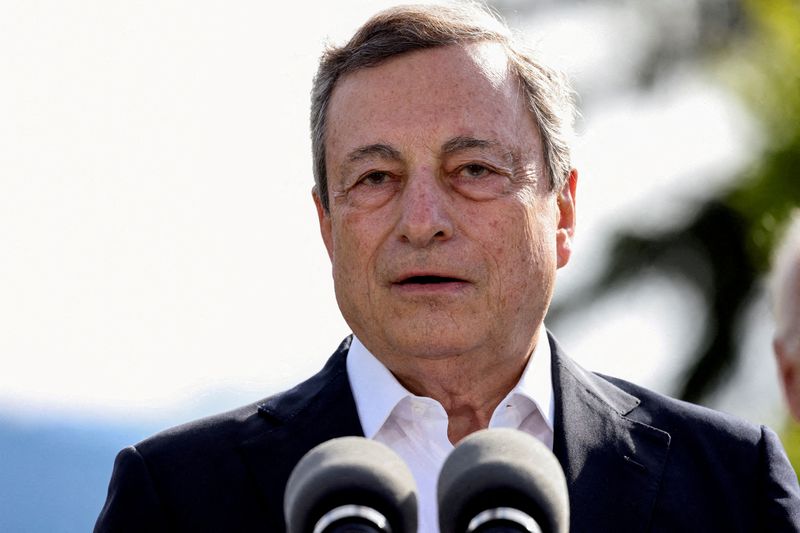By Valentina Za and Giuseppe Fonte
MILAN -Monte dei Paschi di Siena (MPS)’s seventh capital raising in 14 years was always going to be a hard sell, now Italy’s political crisis risks turning it into a mission impossible.
Even before Prime Minister Mario Draghi’s national unity government collapsed this week, propelling Italy towards an election on Sept. 25, MPS CEO Luigi Lovaglio faced a tough job to convince investors the Tuscan bank is a more attractive buy than healthier, cheaper rivals in Italy.
State-controlled MPS, the world’s oldest bank, plans to raise 2.5 billion euros ($2.6 billion) by mid-November to bolster capital and fund some 3,500 voluntary staff exits.
Italy’s Treasury is determined to complete the capital raising despite the political chaos, a person with knowledge of the matter said.
And a lawmaker in the far-right Brothers of Italy party, which is likely to emerge as the largest single party in the next parliament, told Reuters they had no desire to take the blame for MPS’s demise.
After burning through 15 billion euros of investors’ money since 2008, MPS had to be rescued in 2017 in a 5.4 billion euro taxpayer bailout, leaving the government with a 64% stake.
Having failed to sell MPS to UniCredit last year, Italy had to ask the European Union to extend a re-privatisation deadline.
A successful fundraising was considered a priority for Draghi’s executive, two people close to discussions around the transactions said, with investment banks eager to play a role on a deal considered of national importance.
TURNAROUND EXPERT
MPS needs private investors to fund the 900 million euro portion of the cash call that is not covered by the Treasury to comply with EU rules.
To attract buyers the Treasury in February bet on the turnaround skills of Lovaglio, a veteran UniCredit executive who built his career in eastern Europe and returned to Italy in 2018 to steer small bank Creval towards a merger – making it a takeover target for France’s Credit Agricole.
But MPS is seeking to raise a sum more than five times its market value of 450 million euros, capping the discount at which it can sell new shares.
Analysts calculated the shares could be priced at a discount of just over 60% to the bank’s tangible book value – making them more expensive than UniCredit’s.
They say Lovaglio’s needs to find anchor investors for the capital raising, using his cachet as one of Italy’s most experienced banking executives.
“Without anchor investors, launching the capital increase amid the uncertainty stoked by the crisis becomes extremely hazardous,” Bocconi University finance professor Stefano Gatti said.
Despite saying MPS remains open to all prospective investors, Lovaglio has dampened speculation the bank’s commercial partners, French insurer AXA and asset manager Anima could play a role in the capital increase.
People working on the deal say strengthening commercial partnerships to help deliver the cash call could diminish MPS’ appeal as a merger partner – hampering efforts to market the new shares to buyers via the prospect of a tie-up.
The Treasury has ruled out seeking a waiver from the EU to pick up the tab in full were investors to shun the share issue, the person with knowledge of the matter said.
A lack of interest from investors would allow the four banks that have signed a pre-underwriting agreement, Bank of America, Citigroup, Credit Suisse and Mediobanca, to walk away from a contract that would see them mop up unsold shares, MPS has said.
TRICKY TIMING
Lovaglio told parliament earlier this month investor meetings on his new strategic plan for MPS had gone well but the outlook for Italian banks has since darkened.
“What could go wrong is going wrong and (higher interest) rates are of little relief,” Mediobanca Securities analysts said in a note on Friday.
The political turmoil has widened the gap between Italian and German government bond yields, which was already increasing in response to the Ukraine conflict and rising interest rates.
Italy’s reliance on Russian gas and its large manufacturing sector have increased the chances of a recession in the country, where small businesses make up the backbone of the economy.
MPS is the most exposed to sovereign risks among Italy’s leading banks. Its sovereign bond holdings still amount to 2.4 times its best-quality capital, though that is down from 6.3 times five years ago, based on JPMorgan’s analysis.
Shares in MPS have more than halved in value since Lovaglio’s appointment, against a 35% drop in Italy’s banking index since then.
“A further drop in MPS’ stock price in the coming months … and the discount that new shares would need to offer may well push the hyper-dilution beyond what is reasonably acceptable,” Gatti said, referring to the fact that amount MPS needs to raise is disproportionate to its market value.
($1 = 0.9813 euros)
(Reporting by Valentina Za in Milan and Giuseppe Fonte in Rome. Editing by Jane Merriman)


